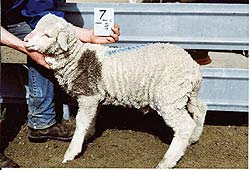
An international group of scientists is warning that the traditional Christmas snack of Brazil nuts could be under threat if intensive harvesting practices continue in persistently exploited areas.
Writing in this week’s edition of the international journal Science (19 December 2003) the main author of the report, Dr Carlos Peres of the University of East Anglia, says: “The clear message is that current Brazil nut harvesting practices at many Amazonian forest sites are not sustainable in the

A team of researchers led by scientists at The Scripps Research Institute has discovered a family of proteins that connect the immune system to the body’s lipids – the fat molecules that are a major building block of the human body.
“This is the first time someone has shown how the immune system and lipid metabolism merge,” says Associate Professor Luc Teyton, M.D., Ph.D., of Scripps Research. Teyton is the lead author of the study.
In the study, Teyton and his colleagues wer

Antibiotics used on swine farms may stir controversy about their potential role in the rise of anti-bacterial resistance, but a new study says their use means significant production efficiency and a 9 percent boost in pork producer profits.
The study, published in the December issue of the Journal of Agricultural and Applied Economics, provides an economically detailed look at the use of antibiotics for growth promotion following dramatic changes that have altered the face of the U.S. swine

In an effort to stamp out one of the most costly quality control problems facing the Australian wool industry, CSIRO Livestock Industries – with assistance from the Australian Sheep Industry CRC – is investigating which Merino sheep genes are responsible for producing black or piebald offspring.
According to research team leader, Dr Belinda Norris, while the Australian Merino is renowned for its uniformly white fleece, a significant proportion of the national flock may carry gene(s) that ca

UK Team is first to use DNA-based techniques to analyse content of spiders’ guts to identify prey
DNA found in a spider’s stomach could herald a breakthrough in the fight against farm pests, which cause millions of dollars of damage to crops.
Cardiff University, UK, scientists, led by Dr Bill Symondson in the School of Biosciences, have become the first to use DNA-based techniques to analyse the content of spiders’ guts to identify the prey they have eaten in

Research news from the Journal of the Science of Food and Agriculture
15 December 2003: The presence of E.coli bacteria, found in foods such as egg white and apple juice, is a major public health concern. The bacteria have, in the past, been inactivated by heat pasteurisation — which can affect flavour and consistency. New evidence published in the Journal of Science of Food and Agriculture, however, suggests that UV irradiation may prove to be a better and more cost effective method